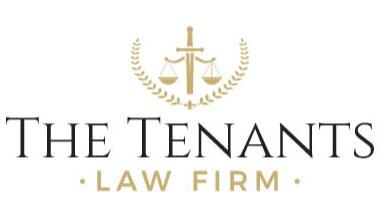What Are Los Angeles Tenants' Rights After a Fire?
Having your home catch on fire or burn down can be one of the most devastating events to happen to a person. Luckily, under California law, a tenant whose home is damaged in a fire due to a landlord’s negligence has certain rights after the fire occurs on the property that they are renting. Perhaps most importantly to the majority of tenants, in instances where the landlord's negligence or unlawful behavior caused the fire, they may be entitled to compensation for hospital bills and other medical costs, loss of personal property, costs of relocating to a new apartment, and in some instances rent for the replacement apartment. To recover, a California tenant has two years to file a claim for damages after a fire.
So, how does a tenant go about getting compensated for the harm they suffered in a fire due to their landlord’s negligence? Read on to learn more.
What Was the Cause of the Fire?
There are numerous causes of apartment fires:
-
Improper use of candles,
-
Unsafe cooking practices,
-
Misuse of indoor heaters or poorly maintained heating systems,
-
Smoking indoors, and
-
Faulty electrical systems.
Although some of these common causes of home fires are due to a tenant negligence, many are also due to the negligence of the landlord. When the negligent or wrongful behavior of a landlord is responsible for the blaze that consumed the tenant's property, they might be able to be compensated for their losses from their landlord (or their landlord’s insurance company).
In order to recover money damages from the landlord, however, the tenant will have to demonstrate that the negligent behavior of the landlord was the cause of the fire. Although this may sound straightforward, proving that the cause of the fire was the landlord's negligence can be very difficult because any potential evidence is often destroyed in the blaze. Therefore, in many instances, if a tenant is looking to recover damages, it is necessary to engage the services of a private investigator to prove the origin and cause of the fire, which can be very expensive.
Should the Landlord Be Held Responsible for the Fire?
For a landlord to be held responsible for a fire on a rental property, the tenant must be able to demonstrate that the landlord knew or should have been aware of the specific conditions or circumstances. The most common example of a condition that landlords should be aware of posing a fire risk is electricity because it is common knowledge that the very nature of electricity is dangerous. Because electricity is inherently dangerous, it is foreseeable that the failure to repair anything involving it may result in harm to the tenants or their property.
Here are some common examples of unsafe electrical conditions caused by landlord negligence that could lead to fires:
-
Improperly functioning heating system,
-
Electrical wiring that is defective or improperly installed,
-
Damaged light switches,
-
Failure to repair defective outlets, or
-
Other inadequately maintained receptacles for electronics.
In some circumstances, the tenant must demonstrate that the landlord had some awareness of the danger on their property (i.e., should have known is not enough), such as, for a landlord to be liable for negligence in the following scenarios they must have some knowledge — fire caused by the presence of flammable chemicals on the rental property, or fire caused by the activity of tenants that they know to be criminal or otherwise dangerous.
The failure of the landlord to do something can also give rise to liability. In some cases, the negligence may take the form of something that the landlord has failed to do, such as regularly examine the property for possible fire hazards or comport with local requirements for permits associated with the installation of electrical devices.
What Are Some Other Considerations?
There are certain circumstances where a landlord's behavior will be assumed to be negligent (know as negligence per se), thereby removing the necessity to hire an investigator to prove the landlord was at fault. For example, negligence per se includes cases where the conduct of the landlord has violated local statutes. Another instance in which the court may presume negligence of the landlord is in cases where the fire originated in a space to which only the landlord or the agents of the landlord have access — such as when the fire begins in a storage closet that only the landlord possesses the key to open.
